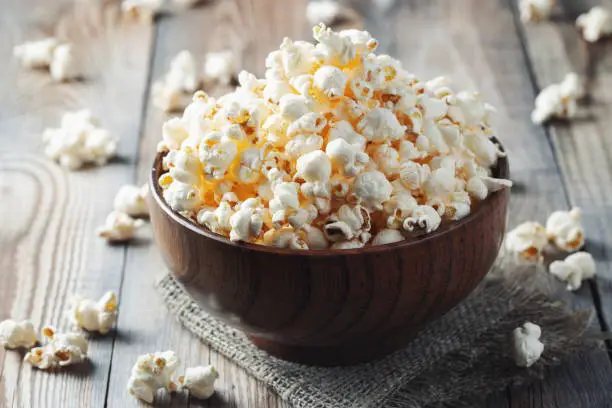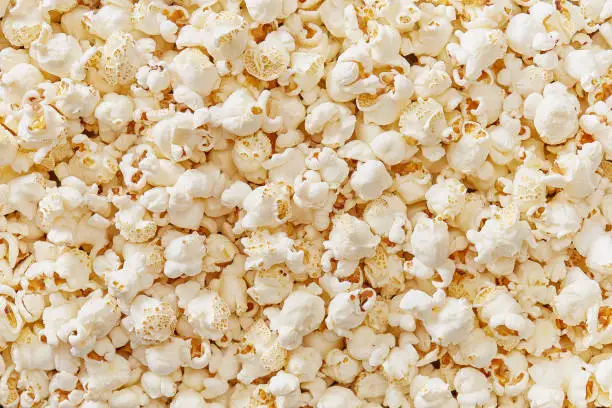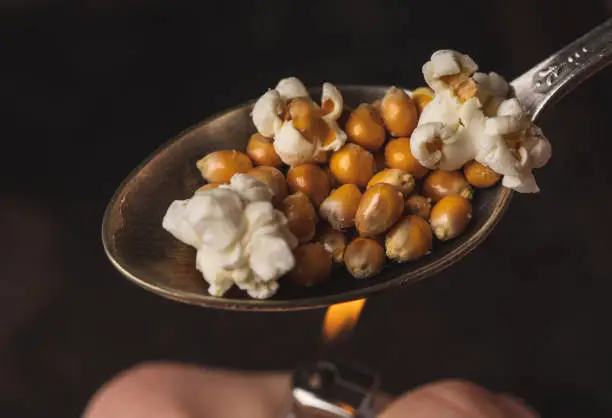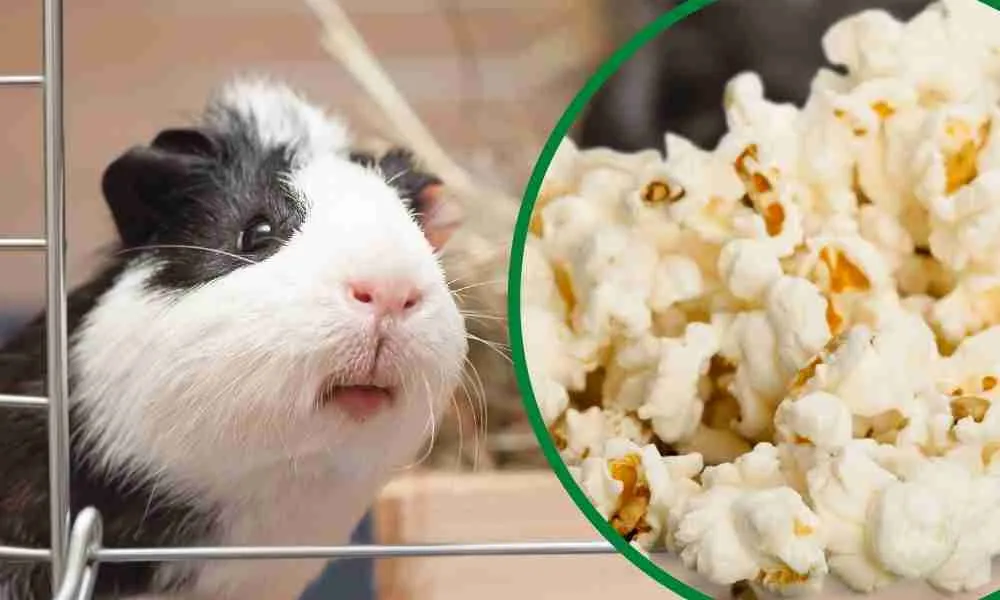Popcorn is a very popular treat and is widely enjoyed worldwide. They’re tasty and crunchy and the perfect pair for a good movie!
Moreover, as a guinea-pig lover, I know cavies, in general, eat specific kinds of foods and this makes me wonder – Can guinea pigs eat popcorn?
No, guinea pigs can’t eat popcorn. These kinds of corn are cooked and guinea pigs’ digestive systems aren’t built to digest cooked foods.
Moreover, popcorns are also made with ingredients, like salt and butter that aren’t good for your little pet’s health.
Also, this snack lacks major nutrients, especially vitamin C, which they need to survive daily.
Instead, they are very rich in fats, sugars, and some other compounds that are bad for your cavies in excess amounts.
You now know that guinea pigs can’t eat popcorn. But out of curiosity, is there a reason why you can feed it to your cavies?
Should it be fed in small amounts or completely avoid them?
Let’s dive deeper into this article to find out why.
Table of Contents
Why Guinea Pigs Cannot Eat Popcorn

Your guinea pig can’t and shouldn’t eat popcorn for many reasons, especially it is processed food. Generally, foods that we process aren’t good for guinea pigs to eat, and popcorn isn’t an exception.
Guinea pigs eat mainly fresh and raw foods that give them the important daily nutritional value they need.
Interestingly, raw corn is fine for your cavy to eat, but the cooked kinds, like popcorn, shouldn’t come into their diet plan at all. Feeding them popcorn is like giving them what’s hard for them to digest.
Moreover, popcorns are normally fatty, sugary, and salty and these ingredients are very unhealthy for us, not to mention your little pets. Many pet owners ask – what about plain popcorn?
And it is still a big “NO” as they’re still good at choking your little pets.
Although this snack has fiber in it, there are many other compounds that can harm their health too. So, popcorn will do more harm than good.
Guinea pigs eat mainly what they’ll benefit from and popcorn has little or no health benefits for your cavy. It even lacks a major nutrient like vitamin C, which guinea pigs need every day to survive.
So, this snack is impractical for your furry friends.
However, it’s still important to know the different nutrients in popcorn so let’s look at the nutritional value of popcorn per 100 g serving below.
Nutritional Value of Popcorn

| Nutrients | Per 100 g |
| Fiber | 14.2 g |
| Vitamin A | 9 mcg |
| Calories | 532 Kcal |
| Phosphorus | 264 mg |
| Magnesium | 151 mg |
| Protein | 11 g |
| Fats | 5 g |
| Carbs | 74 g |
| Zinc | 3.83 mg |
| Potassium | 274 mg |
| Sugar | 0.9 g |
| Sodium | 7 mg |
What Are the Risks of Feeding Popcorn to Guinea Pigs?
Choking Hazards
Due to their rough shapes, they can get stuck in your guinea pigs’ throats. The textures aren’t smooth. And in fact, this can contribute a lot to choking them.
Even as we eat popcorn, you can agree with me that it has the habit of getting stuck in different areas in our mouths. However, a guinea pig’s case is more serious as they can’t always get it off themselves, especially when it happens deep down their throats.
This is a serious risk to your guinea pigs’ health as they can suffocate and even die if not attended to immediately.
Digestive Issues
Generally, raw corns have so much sugar in them making them safe for guinea pigs to eat only in moderation. Popcorn, when processed from the raw form, normally increases in sugar content making it too risky for your little pet to have.
Moreover, when guinea pigs get these high amounts of sugar, they’ll end up having different digestive problems, especially bloating, gas, and even diarrhea.
These are very serious conditions excess sugar can cause to your furry friend as the digestive system of guinea pigs are too weak to handle it!
Obesity
The fat content in popcorn is a lotbecause of the butter and oil used to process them. This is very bad for your cavy’s health as it promotes unhealthy weight gain.
Nevertheless, aside from making your cavies overweight, these fats can go as far as causing kidney problems for your furry friends, which are painful conditions you won’t want them to experience.
What Snacks Can Guinea Pigs Eat?
Having understood that popcorns aren’t healthy snacks for your cavy, you should also know that this is also the same case with other processed snacks.
Interestingly, guinea pigs do well eating raw snacks. This isn’t the choice they make, but an important one they must stick to. These snacks are mostly slices of different fruits and veggies.
So, to keep your cavy healthy and happy, avoid popcorns and try serving them these:
| Carrots | Cilantro | Beet |
| Raw corn | Pumpkin | Cabbage |
| Lettuce | Cucumber | Spinach |
| Broccoli | Tomato | Watercress |
| Bell pepper | Celery | Zucchini |
| Brussel sprouts | Asparagus | Green beans |
Can Guinea Pigs Eat Popcorn Kernels?

A big No! Popcorn kernels, commonly known as “flint corn”, are not safe for guinea pigs to eat.
These corn kernels are well known to be very hard, unlike the sweet and flour corn kernels. Interestingly, their hard nature is what makes them the right kernels for popping.
However, the major risks here are that these kernels are tough enough to choke your guinea pigs and damage different areas in their mouths whenever they eat or chew them.
Even humans find it hard chewing these kernels, so the case of your sensitive cavy wouldn’t even be any good – Not at all!
Final Thoughts
To sum up, guinea pigs cannot eat popcorn. Whether they’re plain or with added ingredients, they both have ways of causing harm to your guinea pigs.
However, always have it in mind that your cavies’ diet remains a steady supply of hays. Fresh fruits and other veggies are mainly snacks and shouldn’t be their main food.
Certainly, you learned a lot from this article and it has helped you clear your confusion about popcorn treats. However, you can help others like you too.
So, don’t hesitate to share it!
Moreover, visit more of our blogs like this to know what your furry friends can and cannot eat.
You’ll also get to learn more about other veggie treats that make great snacks for your furry friend.
